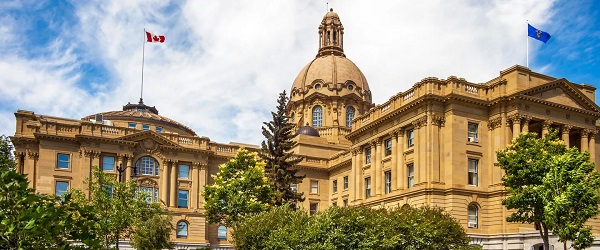National
Conservative MP Leslyn Lewis slams ‘hate speech’ bill for failing to address anti-Christian violence
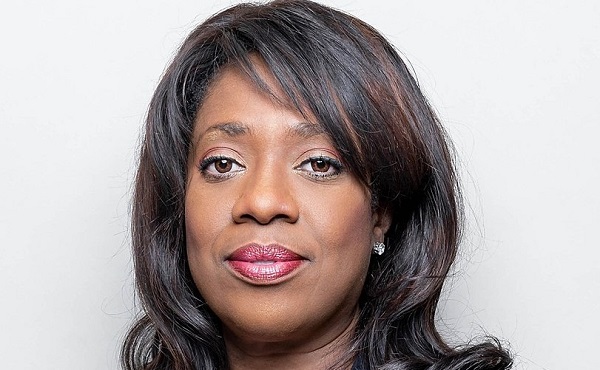
From LifeSiteNews
‘As we witness a record number of sacred spaces being destroyed, Christians have noticed the government’s silence,’ the Canadian Conservative stressed.
One of Canada’s most pro-life and pro-family MPs called out the hypocrisy of a new Liberal “hate” speech bill for being silent regarding rising “Christian hate.”
Speaking to MPs in the House of Commons this week regarding Bill C-9, the Combating Hate Act, Conservative MP Leslyn Lewis said one of her biggest objections to the bill is its lack of mention of persecuted Christians in Canada.
“I find it quite perplexing that Christian hate was not even mentioned in the bill,” she noted to fellow MPs.
Lewis mentioned that in recent years Canada has seen “alarming hate-motivated attacks, including burning and vandalism of churches across Canada.”
“Just last week, a century-old Ukrainian Orthodox church in Edmonton was burned to the ground, Liberal Hate Speech,” Lewis noted.
“As we witness a record number of sacred spaces being destroyed, Christians have noticed the government’s silence. Congregations have been left in fear, and people of faith are feeling abandoned by their government’s lack of enforcement of existing laws.”
As reported by LifeSiteNews, Bill C-9 has been blasted by constitutional experts as allowing empowered police and the government to go after those it deems have violated a person’s “feelings” in a “hateful” way.
Bill C-9 was brought forth in the House of Commons on September 19 by Prime Minister Mark Carney’s Justice Minister Sean Fraser.
The Liberals have boasted that the bill will make it a crime for people to block the entrance to, or intimidate people from attending, a church or other place of worship, a school, or a community center. The bill would also make it a crime to promote so-called hate symbols and would, in effect, ban the display of certain symbols such as the Nazi flag.
Hate-motivated attacks against Christians are on the rise in Canada. In 2021 and 2022, the mainstream media ran with inflammatory and dubious claims that hundreds of children were buried and disregarded by Catholic priests and nuns who ran some Canadian residential schools. The reality is, after four years, there have been no mass graves discovered at residential schools.
However, as the claims went unfounded, since the spring of 2021, over 120 churches, most of them Catholic, many of them on indigenous lands that serve the local population, have been burned to the ground, vandalized, or defiled in Canada.
Lewis: ‘Shocking’ bill does not add new ‘protections’ for Christians
Speaking to MPs, Lewis noted how it is “shocking” that Bill C-9, which is supposed to be about “combating hate,” is “completely silent on the rise of Christian hate.”
“The government’s press release mentions anti-Semitism, Islamophobia, homophobia, and transphobia, yet it makes no mention of the rise of hate crimes toward Christians. This bill does not add new protections for worshippers.
Lewis said that the bill, as warned by constitutional experts, will “expand state powers “by removing the legal safeguards and watering down the definition of hate speech. It paves the path towards politicizing restrictions on speech.”
“It even risks criminalizing dissent to what some would call thought crimes. We must exercise caution. Once such powers are granted to the government, they can be weaponized by any government against its critics,” she noted.
Lewis has warned before that Bill C-9 will open the door for authorities to possibly prosecute Canadians’ speech deemed “hateful.”
According to John Carpay of the Justice Centre for Constitutional Freedoms, Section 319(6) of Canada’s Criminal Code mandates consent of the nation’s attorney general before a person can be charged with a hate crime. Lewis and Carpay warned that Bill C-9 will eliminate this protection.
“The existing criminal code already covers the most serious offenses. Section 318 makes it a crime to advocate or promote genocide. Section 319 criminalizes public incitement of hatred and willful promotion of hate and speech that would lead to a breach of peace,” she said.
“These provisions already strike a careful balance between protecting Canadians from true hate and safeguarding freedom of expression. Bill C-9 attempts to redefine hatred so vaguely that it risks capturing legitimate debate.”
Carpay also lamented how the bill mentions “rising antisemitism” but says nothing about the arson attacks on Catholic and Christian churches plaguing Canada.
“Anti-Catholic hate is obviously not on the minister’s radar. If it were, he would have mentioned it when introducing the Combating Hate Act,” Carpay wrote.
Since taking power in 2015, the Liberal government has brought forth many new bills that, in effect, censor internet content as well as go after people’s ability to speak their minds.
LifeSiteNews recently reported on another new Canadian bill introduced by the Liberal government, Bill C-8, noting how it has raised privacy concerns as it appears that it would give officials the power to ban anyone deemed a dissident from accessing the internet.
Indigenous
Bloodvein First Nation blockade puts public land rights at risk

This article supplied by Troy Media.
The Bloodvein blockade of Crown land is illegal. Canadians must insist on the rule of law, or watch public land quietly slip away
The Bloodvein First Nation in northeastern Manitoba has erected a blockade on Crown land, barring non Indigenous hunters from accessing a large area surrounding its reserve. While the move may reflect frustration with provincial policies or rising tensions over land use, there’s one inescapable fact: it is illegal.
Yet you wouldn’t know that from media coverage.
CBC, for instance, referred to the affected area as “its land,” quoting First Nations leaders and provincial politicians who appear to believe that land surrounding a reserve belongs to the First Nation itself. It does not. The land in question is Crown land—public land owned and managed by governments on behalf of all Canadians, not by any individual or group.
Bloodvein is governed under Treaty 5, which, like other numbered treaties, involved the full cession of land to the Crown. The numbered treaties, signed between 1871 and 1921, were formal agreements between Indigenous nations and the federal government. In exchange for surrendering large territories, First Nations received reserved land, annual payments and the right to hunt and fish on unoccupied Crown land, among other benefits.
The language in Treaty 5 is clear: Indigenous signatories “cede, release, surrender and yield up” all rights and title to the land in question. While the treaty permits hunting and fishing on Crown land, those rights are subject to regulation and can be overridden when land is needed for settlement, resource development
or other public uses.
This framework was reinforced in 1930 through the Natural Resources Transfer Agreements, which granted provinces full control over Crown lands and resource management, while protecting treaty-based hunting and fishing rights.
This means Bloodvein residents, like all Indigenous peoples in Manitoba, retain the right to hunt and fish on Crown land, but they do not have the right to prevent others from doing the same.
The Manitoba Wildlife Federation has called the blockade unlawful and urged the government to act. So far, Manitoba Premier Wab Kinew has remained silent. That silence sends the wrong message, not just about this specific dispute, but about the rule of law more broadly.
While public sympathy for reconciliation is real, so too is concern that Indigenous land claims are increasingly encroaching on public and private property rights.
Cases like the Cowichan Tribes’ recent title claim, supported by oral history and largely untested assertions of continuous occupation, are raising alarm bells for
property owners, especially in British Columbia, where court decisions have cast doubt on long-held ownership rights.
At the heart of these cases is “Aboriginal title”: a legal concept created by Canadian courts that recognizes ongoing Indigenous land rights based on historic occupation, even in the absence of a treaty. These claims, if successful, can override existing property titles and affect both public and private lands.
That concern is compounded by public messaging. Terms like “unceded territory,” “stolen land” and “traditional lands” are now used uncritically in media and government communications. That messaging includes the widespread use of land acknowledgements, statements recognizing that land is historically Indigenous territory. While often intended as gestures of respect, these acknowledgements are also used by some activists to reinforce legal and political claims to land.
Canadians have sat through countless land acknowledgements without being told that these rituals are often linked to broader strategies aimed at asserting expanded territorial control. Many are now asking: How far will this go?
If we are to preserve a fair and functioning system of property rights, the public must insist that governments enforce existing laws, even when it’s politically difficult. Crown land belongs to all Canadians. Indigenous groups have rights, important ones protected by treaty and by law, but so do other Canadians. Those rights must not be overridden by unilateral action or political inertia.
Premier Kinew and other provincial leaders need to reaffirm that the rule of law applies to everyone. That means making it clear: the Bloodvein blockade has no
legal standing and should be removed. Canadians—Indigenous and non Indigenous alike—have equal rights to access public land under the law. Respect for treaty rights requires clarity and honesty about what those treaties say. They must not be reinterpreted after the fact through the lens of modern politics or public pressure.
Crown land is not a bargaining chip. It’s a trust held for all Canadians. If politicians won’t defend it, then Canadians must—because public land isn’t something we give away to silence criticism. It’s something we defend, together.
Brian Giesbrecht is a retired judge and a senior fellow at the Frontier Centre for Public Policy.
Troy Media empowers Canadian community news outlets by providing independent, insightful analysis and commentary. Our mission is to support local media in helping Canadians stay informed and engaged by delivering reliable content that strengthens community connections and deepens understanding across the country.
Agriculture
“We Made it”: Healthy Ostriches Still Alive in Canada

Looks like we made it. For another weekend at least. Until sanity settles down into the head into the head of the federal government that remains fixated on the killing of 399 healthy ostriches. As the clock wound down today, an announcement from the farm proclaimed, “We made it today,” calling it another “miracle Friday.”
WATCH TODAY’S Miracle Friday Announcement
Earlier in the day, Rebel News’ Drea Humphrey reported, “There’s apparently a SWAT team up the road, I hope that doesn’t mean they’ve gotten bad news,” wondering “if the police were preparing to aid the CFIA in the cull.”
Dacey Media reported that the farm said that “Ostrich Hunters” were also spotted at Universal Ostrich Farms according to Katie Pasitney The “kill pen” is fully set up and CFIA have been luring ostriches into it.
But as of 5:30 ET, it seems the farm and the ostriches may have escaped to live another day as the Supreme Court of Canada (SCC) did not hand down a decision to grant a further leave to the farm to prepare its case, or dismiss the case, allowing the Canadian Food Inspection Agency (CFIA) to proceed with their “cull” to kill 399 healthy ostriches.
The palpable, raw government over-reach that includes over 100 Royal Canadian Mounted Police (RCMP) that have occupied the farm highlights the mismanagement of the CFIA and may be one of the reasons that the SCC has hesitated in making a decision before the weekend.
Call to Dismantle the CFIA
On today’s Stand on Guard interview Katie Pastiney, spokeswoman for the Universal Ostrich Farms in British Columbia called for the dismantlement of the Canadian Food Inspection Agency. She says that the CFIA:
“Needs to be dismantled and we need to rebuild this organization back up from the ground up and we need to have a new vision.
“We need to have a new mission and a brand-new face for Canadians that will give us hope that we will be protected not attacked.”
“The Canadian Food Inspection Agency continues to overuse their authority, overuse their excessive freedom that they’ve been given, and they have zero accountability for their actions.”
The farm has been embroiled in a dispute with the federal government and its CFIA agency for close to a year. The agency claims the flock of ostriches has the avian flu, but it refuses to test the farmers’ birds, even though they have been healthy for 258 days. At the same time the CFIA will not let the farmers pay for the tests themselves, saying they will charge them $250,000 per ostrich and put them in jail for 6 months.
The federal agency and the RCMP have seized and occupied the farm since September 22, 2025. they have conducted a campaign of harassment of the farm family and their flock of ostriches that included: arresting the farmers when they were told to go feed their birds; using lights and heavy equipment at night’; sending drones to chase the birds that resulted in pushing one bird over the fence so it hurt its leg, not treating the animals properly; and not feeding the ostriches full rations of food and water and not treating the birds the CFIA injured. These activities have continued as the CFIA continues to construct a “kill box” of hay bales that have been on fire four times while under the CFIA’s supervision and occupation.
Running Out of Time
In a stunning report on X October 2nd, however, before the Supreme Court of Canada had made decision, the CFIA has daily continued to move forward to kill the ostriches ignoring the SCC legal “stay.”
Karen Esperson, Pasitney’s mother yesterday reported on X:
“We need to put CFIA in check.
“This organization feels they are greater than the Supreme Court of Canada. they are still positioning the birds and putting them in the position to be killed immediately. They are assuming they know the outcome of the Supreme Court oof Canada. Do they think they are better than the Supreme court? That they are going to for sure win?
“The Supreme Court has not decided.
“What is happening?
“We are on a stay order and yet I just got a call that they have a whole bunch of birds herded in a little circle in the kill pen.
“Waiting. This is animal cruelty.”
Efforts to Save the Ostriches
More and more Members of Parliament have been speaking up on behalf of the farmers including the local provincial representative, the local Member of Parliament Scott Anderson, who visited the farm trying to talk to the CFIA and also the Official Leader of the Opposition Pierre Poilievre spek out yesterday.
A second press conference hosted by John Catsimatidis, a New York radio host, billionaire and friend of Donald Trump and Dr. Oz, was also held yesterday. The USA Trump administration representatives including Robert F. Kennedy say they want to either pay for the ostrich testing or help re-locate them to the United States for further research opportunities. This outreach has been ignored.
CFIA Has Staff Enough to Kill but NOT Enough Staff to Test?
In my interview today with Pastiney she explained how the CFIA did originally give their ostrich farm an exemption that was later rescinded because the CFIA told them they were “understaffed and we’re not able to perform these tests.”
“There was an exemption package that was given to us on January 2nd. We have an email from Canadian Food Inspection Agency stating that we qualify for special rare genetics within our herd and that we could be exempt.
“Now when we followed through with that because we needed to test them just to show their DNA and their genetics and show their lineage that between January 2nd and January 10th something happened.
“Now we didn’t qualify we lost that right.
“And on January 10th they said sorry you don’t qualify for special rare genetics because we are understaffed and we’re not able to perform these tests.”
Why does the CFIA have staff to occupy the farm for weeks and to kill 399 ostriches as well as requisition the Royal Canadian Mounted Police (RCMP) over 40 cars and reportedly more than 100 police on the farm since September 22nd, and not have the money to test the birds for the exemption?
How much has this debacle and exercise into Carney Government overreach been charged to Canadian taxpayers?
More than the tests to see if the ostriches are healthy or if they qualify for the exemption?
Other Farmers May Join in Efforts to Disband the CFIA
Pastiney says:
“I just did an interview with a farmer that this very same thing happened to them and it was based off a suspicion of tuberculosis outbreak on their farm.
“They [the farmers] had over 600 head of cattle, they had sheep, they had goats, they had pig or pigs, they had chickens.
“They [the CFIA] came in based off suspicion and off their own negligence they killed everything this beautiful older farm had to find out in the end that they tested after everything was dead and there was no tuberculosis.”
“I asked her a very important question, and I said could you trust this organization again? And she said, absolutely not.
“So, it became very clear to me after this about talking to two or three farmers that the Canadian Food Inspection Agency needs to be dismantled.”
“It is an organization that has lost the trust of Canadians.
CONCLUSION
WATCH Katie is Fighting For Everyone’s Freedom | Stand on Guard
www.kraydensrightnews.com is a reader-supported publication.
To receive new posts and support my work, consider becoming a free or paid subscriber.
-
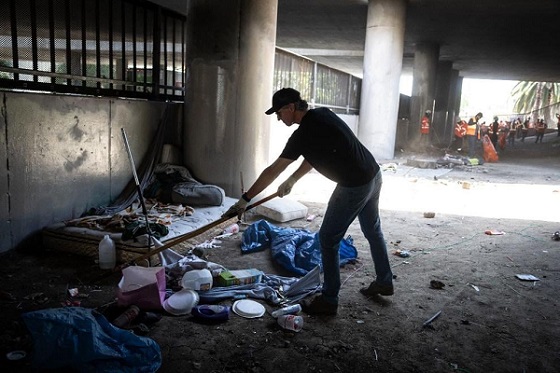
 Business2 days ago
Business2 days agoLA skyscrapers for homeless could cost federal taxpayers over $1 billion
-
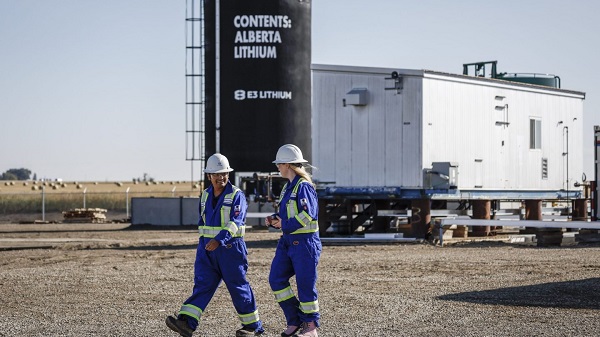
 Alberta2 days ago
Alberta2 days agoAlberta’s E3 Lithium delivers first battery-grade lithium carbonate
-

 Artificial Intelligence2 days ago
Artificial Intelligence2 days agoAI chatbots a child safety risk, parental groups report
-

 Censorship Industrial Complex2 days ago
Censorship Industrial Complex2 days agoHurting someone’s feelings could be punishable under Canadian hate crime bill: legal expert
-

 Energy2 days ago
Energy2 days agoNuclear power outperforms renewables every time
-

 Automotive1 day ago
Automotive1 day agoCanada’s EV subsidies are wracking up billions in losses for taxpayers, and not just in the auto industry
-

 Business23 hours ago
Business23 hours agoUK Government Dismisses Public Outcry, Pushes Ahead with Controversial Digital ID Plan
-
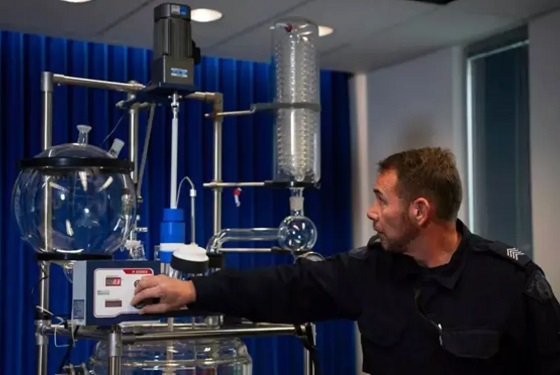
 Crime22 hours ago
Crime22 hours agoThe “Strong Borders Act,” Misses the Mark — Only Deep Legal Reforms Will Confront Canada’s Fentanyl Networks
















